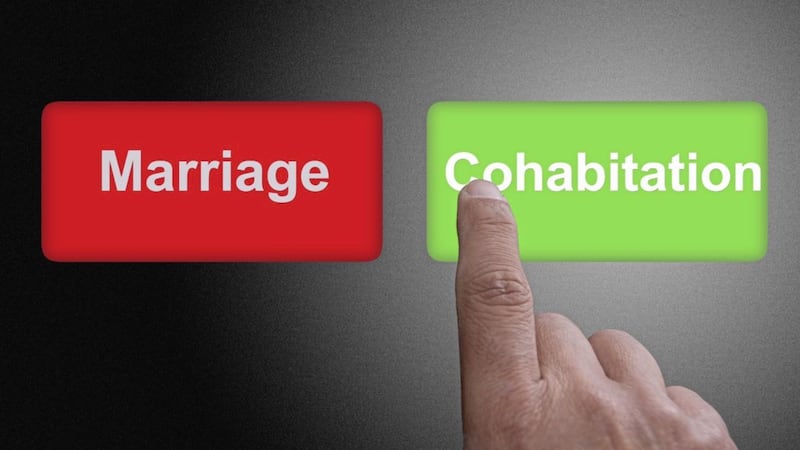THE term cohabitation refers to a couple who live together but are not married or in a civil partnership. As a result, the widely held view of long-term partners being “common law spouses” with the same level of protection afforded to them as a married couple, is little more than a fictional creation and this misconception can lead to unexpected and upsetting outcomes.
If the property you live in is owned by your partner, you can live there only as long as they give you permission to do so. They could evict you after giving reasonable notice, after which, you would be trespassing.
It may be possible to apply for an occupation order to provide temporary relief to enable you to find alternative arrangements. Equally, you may be able to establish a beneficial interest or share in the value of the property, perhaps by having contributed to the purchase price or substantial renovation of the property.
The law presumes that if property is jointly owned, it is a “joint tenancy”. This is common for married couples and gives each individual equal rights to the whole property if the relationship breaks down. In the event of a death, the property will automatically pass to the survivor, as opposed to forming part of the deceased’s estate to be distributed under the terms of a will or intestacy rules. The alternative to this is a “tenancy in common” where each party owns a percentage share.
A cohabitation agreement can be a relatively simple and cost-efficient method of protecting your interests if unmarried. It can detail how mortgages and bills will be paid as well as providing a framework for dealing with property and assets in the event of separation. It should ideally be signed then witnessed as a deed and state that the parties intend to be bound by the terms.
The parties should then periodically review this document and amend it if necessary, for example, following a large purchase or significant event like the birth of a child. Understandably, it may be hard to envisage breaking up with a long-term partner, nevertheless it is wise to plan for future possibilities.
Equally, the creation of a will should be considered rather than relying on the assumption that your assets will pass to your partner. It is estimated that over 65 per cent of people do not have a will. This means that when they die, their estate will be distributed on the basis of prescribed intestacy rules, which may seem unfair.
These rules do not make provision for unmarried partners, regardless of how long the couple had been together, therefore the onus rests on cohabitants to act and ensure property is distributed as desired.
In summary, cohabitation is not equivalent to marriage and the law at present regards cohabitants as a distinct group, with increased rights accorded to married couples.
Therefore, it is important for cohabitants to protect themselves against future events and they should contact a solicitor for advice on how to best achieve the appropriate level of protection they desire.
:: Don Thompson (don.thompson@mckees-law.com) is a partner in the property team of McKees (www.mckees-law.com).





